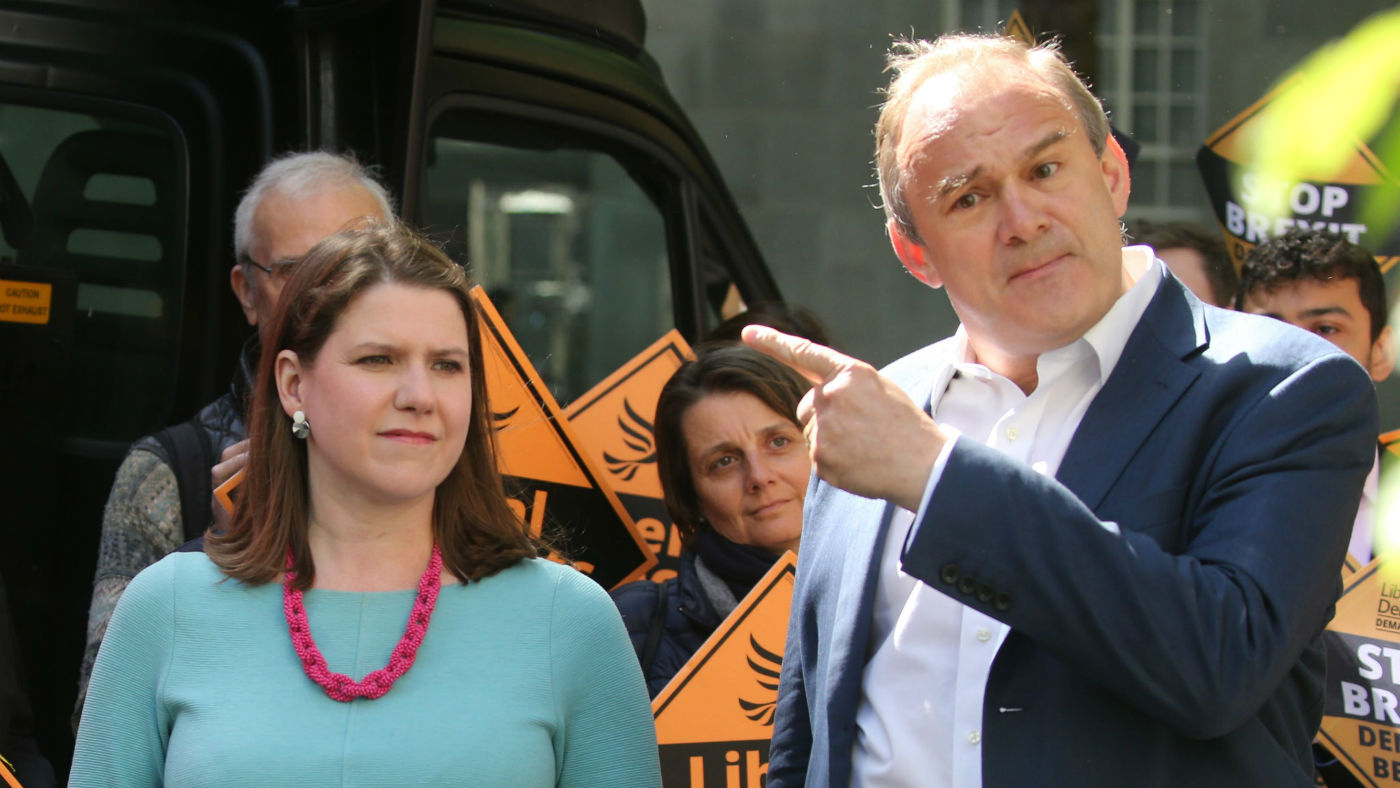Liberal Democrats leadership results: who are Ed Davey and Jo Swinson?
In the shadows of the Tory contest, the party of Remain elects its new leader

A free daily email with the biggest news stories of the day – and the best features from TheWeek.com
You are now subscribed
Your newsletter sign-up was successful
The contest to become the next leader of the Liberal Democrats draws to a close today, with either Ed Davey and Jo Swinson set to be announced as the winner this afternoon.
While all eyes have been on the Tory leadership race, the Lib Dems have been voting for the person to build on their best local and European election results ever earlier this year.
The party, which has 12 MPs in the House of Commons and 16 MEPs in Brussels, are in “their strongest position since they entered into coalition with the Conservatives in 2010”, writes Sir John Curtice, professor of politics at Strathclyde University, for the BBC.
The Week
Escape your echo chamber. Get the facts behind the news, plus analysis from multiple perspectives.

Sign up for The Week's Free Newsletters
From our morning news briefing to a weekly Good News Newsletter, get the best of The Week delivered directly to your inbox.
From our morning news briefing to a weekly Good News Newsletter, get the best of The Week delivered directly to your inbox.
Their performance “seems to have snuffed out an attempt by a group of Labour and Conservative rebels to form a new ‘centre’ party, Change UK,” says Curtice, as they have postioned themselves as the party of Remain.
The incumbent, Sir Vince Cable, announced he would be stepping down in May, telling members that the next leader will face the challenge of stopping Brexit and building “a powerful, liberal, green, and social democratic force in the centre ground of British politics”.
Both Davey and Swinson back a second EU referendum in the hope of preventing the UK from leaving the European Union.
But what else do we know about the contenders?
A free daily email with the biggest news stories of the day – and the best features from TheWeek.com
Sir Ed Davey
The MP for Kingston and Surbiton, in south-west London, served in the coalition as secretary of state for energy and climate change.
Davey has pledged to head up the “fight to stop Brexit” but also said the country needs “a new economic model”.
The Guardian says he “intends to draw on his former climate brief to give the Lib Dems another key policy to champion”.
“I'm talking about de-carbonising capitalism, making capitalism turn green so Britain is a world green finance capital. That means being tough on our banks, on the stock exchange, on the pension funds, so they take account of climate risk,” he has said.
He has ruled out any future formal coalitions with the Conservatives or Labour in their current forms, because of the Tory position on delivering Brexit and because it would be “deeply unattractive” for the Lib Dems to enter a formal coalition with Jeremy Corbyn.
Rather than forming formal pacts with other parties, he has instead urged moderate MPs from other parties to defect.
Jo Swinson
Long seen as a future Lib Dem leader, Swinson passed up the chance to challenge Vince Cable following the 2017 general election, instead serving as his deputy for the past two years.
Swinson was first elected in 2005 as the MP for East Dunbartonshire. She was defeated by the SNP’s John Nicolson in 2015 but regained the seat during the 2017 snap election with a majority of 5,339 votes.
When Swinson was first elected she was the Baby of the House (youngest member of the House of Commons), aged just 25, and the first ever MP to have been born in the 1980s.
An assured media performer, “she leans to the right of the party, preferring ‘nudge’ methods on equalities and a light touch on business regulation”, says The New European.
“Swinson has been unafraid to take stances that wouldn’t necessarily play well to her natural crowd, such as the time she argued for a statue of Margaret Thatcher on the grounds of celebrating the first female prime minister, or her votes against reducing university tuition fees,” says the paper. “As a junior equalities minister in the coalition, and as chair of the Lib Dem campaign for gender balance, her feminism is outspoken and pragmatic.”
While both Swinson and Davey hail from the right of the party, a major contrast between the two is their attitude to the Lib Dems’ time in coalition.
Swinson has previously said the party must “own the failures” of their time in government, citing some deep cuts to public services, the introduction of the hostile environment and the bedroom tax.
Davey, on the other hand, said he will “never say the coalition was a bad thing” and that the Lib Dems’ difficult reputation in coalition had only been down to their PR.
“We played the politics wrong, but we did look after the people who needed looking after and we stopped the Tories cutting far deeper and more dramatically,” he said. “We got the blame for the bad things and no credit for the good things.”